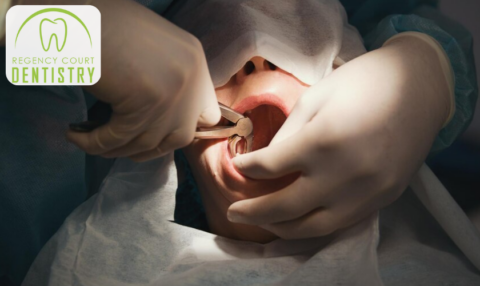Exploring Different Sedation Options for a Comfy Wisdom Pearly Whites Extraction Experience
The usage of sedation throughout such treatments has come to be increasingly usual to relieve anxiety and discomfort. With a variety of sedation choices offered, from local anesthetic to basic anesthetic, each method provides differing levels of relaxation and pain control.
Neighborhood Anesthesia
Local anesthetic is a frequently made use of method for numbing specific locations of the mouth during wisdom teeth extraction procedures. By providing a neighborhood anesthetic, such as lidocaine, a dental professional can make certain that the patient stays pain-free and comfortable throughout the removal process.
Among the key advantages of neighborhood anesthesia is its targeted numbing result, which indicates that only the details area being dealt with is impacted. This local method minimizes the danger of systemic side effects and enables a quicker recuperation post-procedure. Additionally, local anesthesia is thought about to be a secure and routine technique in dentistry, with minimal dangers included when provided by a qualified expert.
Nitrous Oxide
Nitrous oxide, typically recognized as chuckling gas, is a type of sedation typically utilized in dentistry to help individuals relax during oral treatments. This sedation alternative allows the client to remain receptive and mindful throughout the treatment while really feeling at convenience and comfy.
Furthermore, nitrous oxide is understood for its fast healing time. When the mask is removed, the effects of the gas use off swiftly, permitting people to resume their normal tasks without lingering sedative impacts. This makes laughing gas a hassle-free option for those that need to drive themselves home after the dental appointment. Furthermore, laughing gas is appropriate for clients of all ages, making it a flexible sedation choice for knowledge teeth extractions and other dental treatments.
Dental Sedation
Dental sedation, a medicinal technique employed in dentistry, entails the administration of sedative drugs by mouth to induce an unwinded state during dental procedures. The medicines prescribed for dental sedation belong to a course of drugs called benzodiazepines, which have sedative, anxiolytic, and amnesic homes.
One of the main benefits of oral sedation is its simplicity of management. Unlike intravenous sedation, oral sedation does not require shots or needles, making it an extra comfy option for people with a fear of needles. In addition, dental sedation is taken into consideration efficient and safe when carried out by qualified dental experts. However, it is important for clients to follow pre-operative instructions offered by their dental expert, such as avoiding from consuming or consuming alcohol prior to the procedure to guarantee the sedative medicine functions as meant.
IV Sedation
Administered intravenously by skilled doctor, IV sedation is an effective approach utilized to cause a controlled state of deep leisure and unfamiliarity during dental treatments. Unlike oral sedation, which can be unpredictable in its impacts, IV sedation enables precise control over the level of sedation, making it an ideal selection for intricate treatments like wisdom teeth extractions.
Throughout IV sedation, a sedative medicine is supplied directly into the bloodstream through a vein, permitting it to work quickly and effectively. This method makes certain that the individual remains unaware and comfy of the procedure while still preserving vital functions such as breathing and heart rate.
One of the primary benefits of IV sedation is its ability to offer a deeper degree of sedation compared to other important link methods, making it specifically ideal for people with high levels of stress and anxiety or those undergoing extensive oral work (wisdom teeth removal aspendale). In addition, the effects of IV sedation typically disappear progressively after the treatment, reducing the likelihood of grogginess or remaining negative effects. Generally, IV sedation offers a efficient and secure alternative for making certain a comfortable and worry-free experience throughout knowledge teeth extraction

General Anesthesia
Having actually discussed the benefits of IV sedation for wisdom teeth removal, the use of basic anesthetic supplies an alternate option for individuals calling for a deeper level of unconsciousness during oral procedures. General anesthetic causes a controlled state of unconsciousness, making certain the person really feels no pain or pain during the extraction process. This approach is especially useful for people with extreme dental anxiety, complicated surgical needs, or those undertaking several removals simultaneously.
General anesthesia is provided by a qualified anesthesiologist who very closely keeps track of the client's essential indicators throughout the procedure. It includes using intravenous medicines or inhaled gases to generate a state of unconsciousness. While under basic anesthetic, the individual will certainly not know the surgery, experience any kind of pain, or have any kind of recollection of the procedure afterward.
Although basic anesthetic is risk-free when administered by qualified professionals, it carries a somewhat greater risk contrasted to various other sedation alternatives - wisdom teeth removal aspendale. Individuals taking into consideration general anesthesia for knowledge teeth extraction should review the prospective risks and benefits with their dental professional or dental cosmetic surgeon to make an educated choice based on their private demands and clinical history

Verdict
In verdict, various sedation options are available to make certain a comfortable wisdom teeth extraction experience. Oral sedation and IV sedation offer deeper levels of leisure, depending on the person's demands.
Nitrous oxide is appropriate for individuals of all ages, making it a versatile sedation option for wisdom teeth extractions and other oral procedures.
